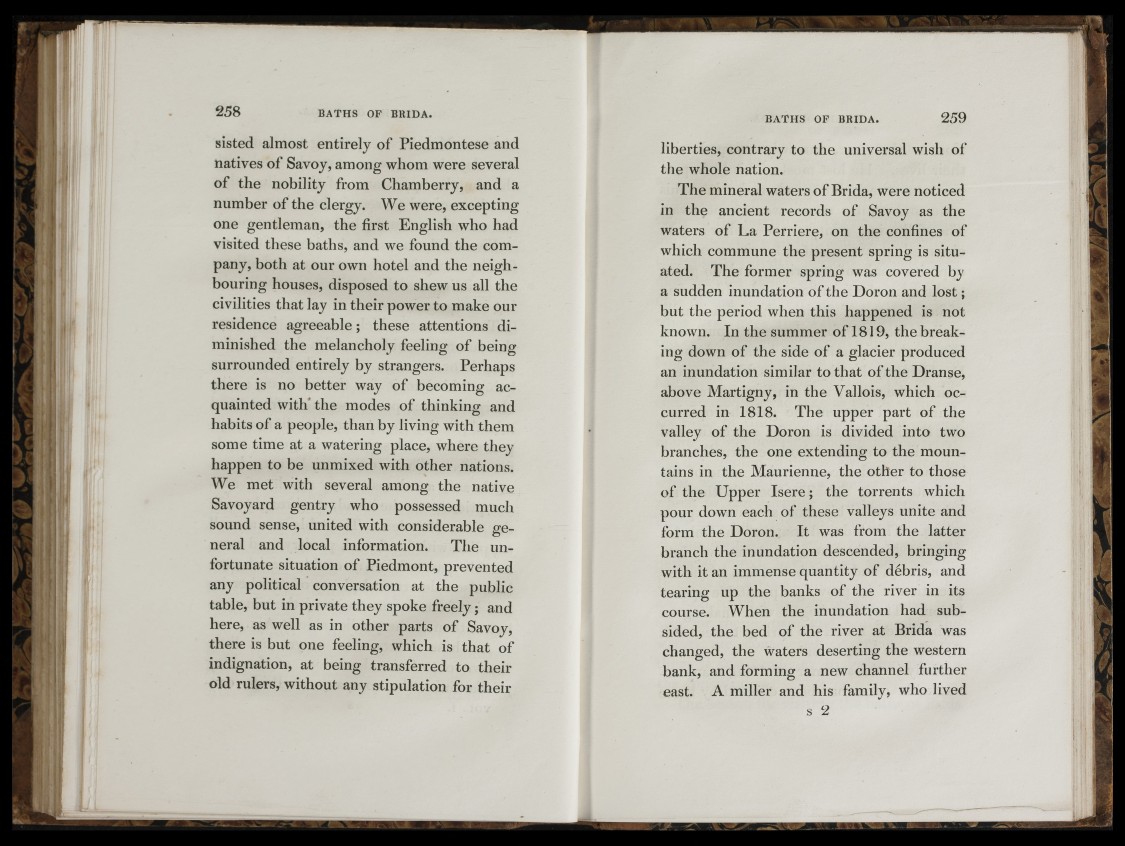
B A T H S O F B R ID A . 259
sisted almost entirely of Piedmontese and
natives of Savoy, among whom were several
of the nobility from Chamberry, and a
number of the clergy. We were, excepting
one gentleman, the first English who had
visited these baths, and we found the company,
both at our own hotel and the neighbouring
houses, disposed to shew us all the
civilities that lay in their power to make our
residence agreeable; these attentions diminished
the melancholy feeling of being
surrounded entirely by strangers. Perhaps
there is no better way of becoming acquainted
with* the modes of thinking and
habits of a people, than by living with them
some time at a watering place, where they
happen to be unmixed with other nations.
We met with several among the native
Savoyard gentry who possessed much
sound sense, united with considerable general
and local information. The unfortunate
situation of Piedmont, prevented
any political conversation at the public
table, but in private they spoke freely; and
here, as well as in other parts of Savoy,
there is but one feeling, which is that of
indignation, at being transferred to their
old rulers, without any stipulation for their
liberties, contrary to the universal wish of
the whole nation.
The mineral waters of Brida, were noticed
in the ancient records of Savoy as the
waters of La Perriere, on the confines of
which commune the present spring is situated.
The former spring was covered by
a sudden inundation of the Doron and lost ;
but the period when this happened is not
known. In the summer of 1819, the breaking
down of the side of a glacier produced
an inundation similar to that of the Dranse,
above Martigny, in the Vallois, which occurred
in 1818. The upper part of the
valley of the Doron is divided into two
branches, the one extending to the mountains
in the Maurienne, the other to those
of the Upper Isere ; the torrents which
pour down each of these valleys unite and
form the Doron. It was from the latter
branch the inundation descended, bringing
with it an immense quantity of débris, and
tearing up the banks of the river in its
course. When the inundation had subsided,
the bed of the river at Brida was
changed, the waters deserting the western
bank, and forming a new channel further
east. A miller and his family, who lived
s 2
■
il
!■ '■